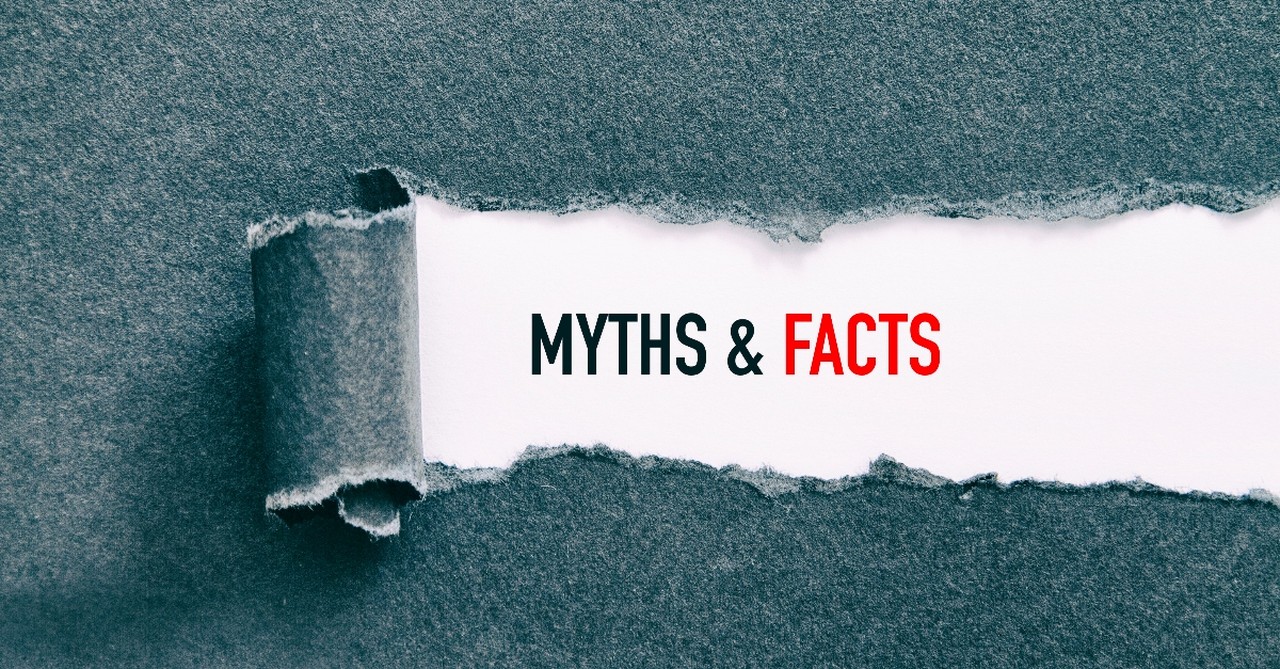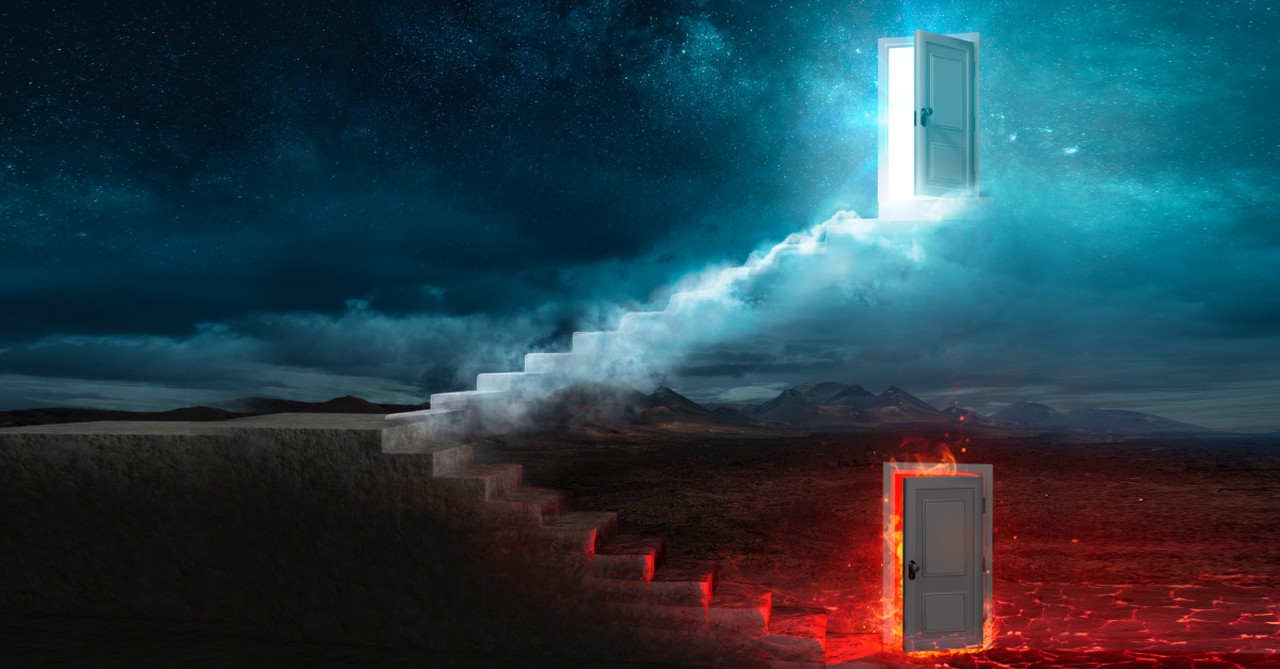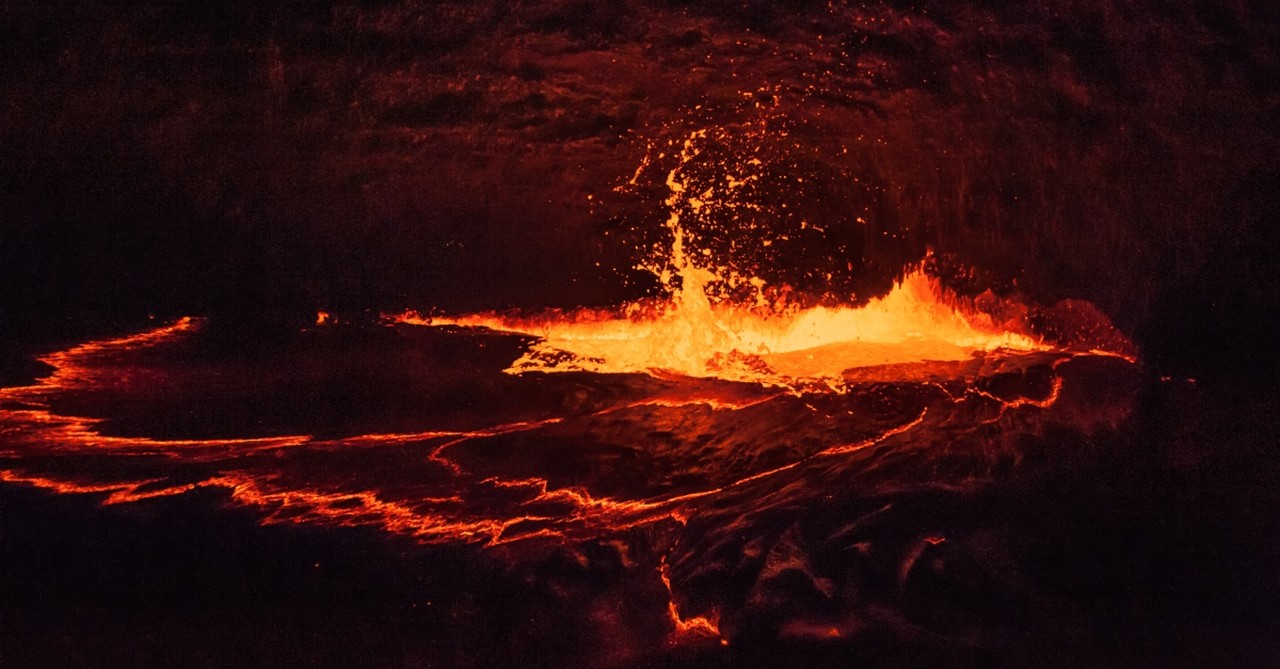5 Myths about Hell That Are Not Biblical

In his book The Problem of Pain, C. S. Lewis famously wrote about hell: “There is no doctrine which I would more willingly remove from Christianity than this, if it lay in my power. But it has the full support of Scripture and, specially, of Our Lord's own words; it has always been held by Christendom; and it has the support of reason” (HarperOne, 1940, p. 119-120).
Throughout the history of Christianity, the reality of hell as the destination that unbelievers go to when they die has been an essential tenant of the faith. Individuals like Jonathan Edwards and Charles Spurgeon regularly taught about the danger of going to hell if someone rejected Christ.
We see this teaching reflected in the writings of C. S. Lewis. Yet, the modern church of the Western world has somewhat moved away from this teaching, with many believers accepting other views that were not embraced by the church in the past.
Today, hell is a controversial subject among Christians. Many believers do not want to dwell on the fiery fate of those who do not place faith in Christ, while others scoff at the idea of hell altogether. Some Christians even argue that hell and eternal punishment are pagan concepts.
I think the problem is that there are numerous misunderstandings because people are not gleaning their views of hell from the Bible.
Instead, some believers base their beliefs about hell on their feelings, depictions in popular culture or literature, or the desire to appease the world. Others are influenced by members of “Progressive Christianity,” who seek to rewrite the historic, biblical faith of followers of Christ.
As believers who want to uphold the truth faithfully and lovingly, we need to know what Scripture teaches about hell. The reality of hell and the fact that unbelievers go there after death are essential points of Christianity.
Not only is this doctrine important because it addresses the fate of those who reject Jesus, but also because this doctrine is tied to other essential tenets, such as sin, judgment, and God’s holiness.
Since hell is an important teaching of Christianity, we need to carefully examine the views that challenge what the Bible teaches.
Let’s look at five myths about hell that are not biblical.
Photo Credit: ©iStock/Getty Images Plus/1001Love
1. Hell Does Not Exist

1. Hell Does Not Exist
SLIDE 1 OF 5
There are Christians who do not believe in the existence of hell. According to them, hell does not match the character of God. In His love and goodness, He would never allow anyone to go to hell.
Scripture directly contradicts those who believe that hell does not exist. In the Bible, we can read about our Lord and Savior, Jesus Christ, talking about hell quite a bit.
For instance, we read about how Jesus taught that it is better to lose a hand or eye than to sin and be thrown into hell (Matthew 5:29-30). He also gave us the parable of Lazarus and the rich man, which describes the rich man going to hell after he dies (Luke 16:19-31).
Those who assume that hell lessens God’s love do not fully grasp the extent of His love. All people have sinned, which means everyone deserves punishment in hell (Romans 3:23). Because the Lord loves us, He sent His Son to die for us (John 3:16).
Jesus took sin’s punishment on Himself (Isaiah 53:5; 2 Corinthians 5:21). That fact that we deserve death and hell, but God still made a way for us to be saved, shows His great love (Romans 5:8).
Christians who deny the existence of hell diminish God’s holiness. The one true God is holy and sinless (Psalm 5:4; 99:9). He cannot tolerate sin or stand in the presence of wickedness. As 1 John 1:5 says, “God is light; in him there is no darkness at all.”
To think that God could leave sins unpunished is an affront to His holiness. The believer’s sin has been punished since Christ bore their sins in His body.
However, unbelievers reject Jesus and, thus, do not have their sins paid for. The Lord will not tolerate these individuals in His presence, especially after they have spent their lives rejecting Him and living in rebellion against Him.
To try and erase hell downplays biblical teaching, God’s love, and His holiness.
Photo Credit: ©Getty Images/marekuliasz
2. Satan and His Demons Reside in Hell

2. Satan and His Demons Reside in Hell
SLIDE 2 OF 5
Another misconception about hell is that Satan and his demons live there. Some Christians even think that the devil rules hell. Such assumptions have undoubtedly been influenced by depictions in popular culture of a horned and fork-tailed Satan living in flames as the king of hell.
The idea of hell being the home of the devil aligns more closely with Milton’s Paradise Lost than with God’s Word. Satan has never been in hell, but the Lake of Fire was created for the devil and his demons (Matthew 25:41). Their eternal destination is the fiery lake (Revelation 20:10).
In contrast to the belief that Satan is confined, the Bible says that the devil “prowls around like a roaring lion looking for someone to devour” (1 Peter 5:8).
Scripture also informs us that Satan is the “god” of this age, who blinds people from the truth of the gospel (2 Corinthians 4:4). His wicked influence is evident in the world, which shows that he is not currently confined in hell.
The Bible also teaches that the devil is the enemy of believers since he tempts us and attempts to hinder our Christian walk.
He would have to be active to throw the flaming darts that we must protect ourselves from (Ephesians 6:11,16). We need to be aware of Satan’s schemes and active presence in the world (2 Corinthians 2:11).
Although Satan and his demons are not in hell currently, there are certain demons that are locked away. During the end times, as part of one of the trumpet judgments, locust-like demons will be released from their confinement in the Abyss (see Revelation 9:1-12).
The depiction of specific evil spirits being locked away is consistent with what the legion of demons told Jesus when they begged Him to send them into a herd of pigs (Luke 8:30-33).
Therefore, while there are no demons living in hell and Satan does not rule as the king of hell, there are demons currently in the Abyss.
Photo Credit: ©GettyImages/CasPhotography
3. Hell Is the Same as Being Annihilated

3. Hell Is the Same as Being Annihilated
SLIDE 3 OF 5
One of the more recent challenges to the doctrine of hell is the teaching of annihilationism. There are those who confess faith in the gospel and hold to the view that unbelievers will be completely destroyed or annihilated in hell.
According to this view, unbelievers will not suffer conscious eternal punishment but will be punished by being destroyed and, thus, cease to exist. Connected to annihilationism is the view of conditionalized, which teaches that human souls cannot possess immortality unless they receive it from God.
Many cult groups also hold to annihilationism, such as Jehovah’s Witnesses and Seventh Day Adventists. The arguments that these groups make regarding annihilation are often the same ones that Christians make when advocating for the idea of total destruction of unbelievers.
Despite the growing acceptance of annihilationism, there are many biblical problems with this view.
Scripture teaches that believers will receive everlasting life while unbelievers will receive everlasting punishment (Matthew 25:46; see also Daniel 12:2 and 2 Thessalonians 1:8-9).
In the verse in Matthew, we see that Jesus specifically refers to “everlasting” punishment. If the people are annihilated, and their punishment is not eternal, then we cannot assume that the “everlasting life” believers receive is eternal either.
Furthermore, when Jesus refers to the final destination of unbelievers, He said that in their dwelling place, there will be weeping and gnashing of teeth (Luke 13:28). Clearly, unbelievers will be aware of their suffering, not merely extinguished from life.
Finally, when Christ said, “Do not be afraid of those who kill the body but cannot kill the soul. Rather, be afraid of the One who can destroy both soul and body in hell,” the Greek word for “destroy” has multiple meanings (Matthew 10:28). It can serve as a metaphor for eternal punishment.
Taking into consideration the wider teaching of Scripture, we know that unbelievers will suffer eternal death and punishment, in which they will be consciously aware of their torment.
Photo Credit: ©Getty Images/Romolo Tavani
4. Hell Is the Same as the Lake of Fire

4. Hell Is the Same as the Lake of Fire
SLIDE 4 OF 5
Often, Christians assume that the fiery lake mentioned in Revelation is an image of hell. These locations do have similar descriptions of flames and judgment, but are they the same place?
In a previous article, I wrote about how there are indications that hell is different from the Lake of Fire. A significant difference is that when unbelievers enter the Lake of Fire, they enter their eternal dwelling in resurrected bodies (Revelation 20:11-15).
In contrast, when unbelievers die and go to hell, their soul is present, but they have not yet been resurrected.
Unbelievers enter the Lake of Fire after the Great White Throne Judgment, which is when they are judged and given varying levels of punishment, though all unbelievers will dwell in the Lake of Fire (Revelation 20:12).
Unlike what annihilationists believe, those who reject Christ will be tormented day and night in the burning lake alongside the Antichrist, False Prophet, and Satan (Revelation 14:11; 20:10).
A helpful way to think of this is that hell is the temporary dwelling place of unbelievers, but they will spend eternity in the ultimate hell: the Lake of Fire. There is a difference between someone’s temporary or intermediate state and someone’s eternal state.
We see a similar distinction between heaven, which is where believers go when they die (2 Corinthians 5:1), and the New Heaven and New Earth, which is where believers will dwell for eternity (Revelation 21:1-5).
Therefore, hell is not the same as the Lake of Fire. One is the temporary destination of unbelievers, while the other is where they will go for eternal punishment.
Photo Credit: ©Getty Images/Brina Bunt
5. God Sends People to Hell

5. God Sends People to Hell
SLIDE 5 OF 5
A final misconception that Christians have about hell is that God sends people to hell. Often, those who deny the existence of hell argue that a loving God would never send anyone to hell.
In their mind, people are not deserving of eternal punishment, and God is cruel for casting individuals into torment.
Of course, God is divinely in control of all things. However, He cannot act against His character. The Lord would not decide to send a believer to hell because of a whim or erratic temper. God does not act like that.
God is Sovereign over all, but humans are not passive onlookers. They actively decide to place faith in Christ or turn down His offer of grace.
In John 3:18, we read, “Whoever believes in him is not condemned, but whoever does not believe stands condemned already because they have not believed in the name of God’s one and only Son.”
In essence, individuals choose hell when they choose not to believe in Jesus’ death and resurrection for salvation. To say that God sends people to hell does not consider the full picture, which includes human free will to accept or refuse His grace.
Scripture teaches that the Lord does not delight in the death of the wicked (Ezekiel 18:23). He desires all people to come to Him in faith so that they do not perish (2 Peter 3:9). Despite that, this is what God wants, we know that people choose to reject His loving offer of salvation.
Jesus, God the Son, has already endured the punishment we deserve. No one has to suffer punishment in hell, but they choose to do so when they turn down the Lord’s loving offer of grace.
Hell is not a popular doctrine in modern society, but it is a biblical reality. Christians should base their beliefs about hell and eternal punishment on Scripture, not on feelings, trends, or popular culture.
For further reading:
What Did Jesus Say about Hell?
Photo Credit: ©iStock/Getty Images Plus/wacomka


Originally published September 21, 2023.






